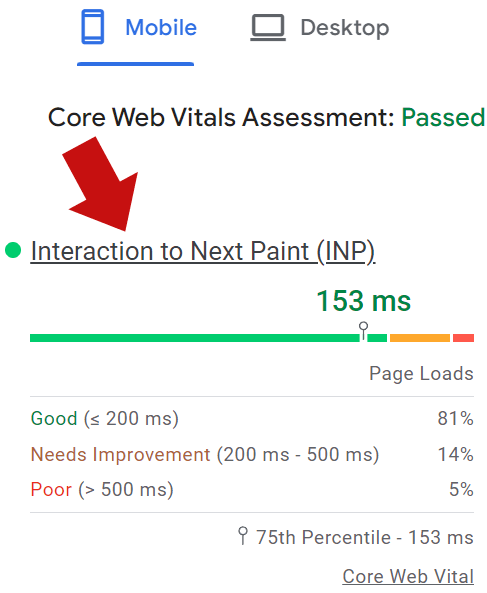Latest
SEO Industry Updates: October 2024

In October 2024, SEO saw important updates affecting everything from Google’s search algorithms to AI-powered search features and the rise of new search engines. Here’s a look at what these changes mean for your content strategy moving forward.
Google’s Key October 2024 Updates
In October, Google introduced several important changes aimed at improving the user experience and search quality. Here’s a breakdown
Content Demotion for Irrelevant Sections
To enhance search quality, Google now demotes pages with content that’s “starkly” different from the site’s main theme or purpose. This adjustment highlights the importance of maintaining a clear content structure, so your pages stay relevant to your overall website theme and retain their rankings.
Core Web Vital (CWV) Adjustments
The official documentation for how Core Web Vitals are scored was recently updated by Google with new insights into how Interaction to Next Paint (INP) scoring thresholds are chosen and offering a better understanding of INP. Focusing on INP and similar metrics can help ensure your site is user-friendly, which Google now rewards in rankings.

URL Parameter Recommendations
URL parameters help track or dynamically change page content and are often displayed after a question mark in a URL (e.g., ?utm_source=facebook). Google’s new recommendation for a standardised structure—using “=” and “&”—helps the search engine better understand and index pages, improving search efficiency.
AI-Powered Search Trends
With AI transforming the search landscape, search engines are changing how they present and rank content. Keeping up with these shifts is essential for effective SEO.
- Optimising for AI-Driven Featured Snippets: Optimising content for featured snippets (highlighted search results that provide quick answers) increases the chances of being included in AI-driven search summaries. AI overviews typically draw from these snippets, helping your content gain visibility even if it’s not in the top organic results.
- Emphasis on Brand Mentions: Instead of relying solely on backlinks, AI models value brand mentions across credible sites, such as Wikipedia, Reddit, or other authority sites. Increasing mentions of your brand across high-impact platforms can improve how AI recognises and displays your content.
- RAG Models: With AI models using Retrieval-Augmented Generation (RAG) technology, they retrieve data in real-time to answer user questions. Content that is factual, accurate and reliable is more likely to be chosen by AI models in responses, underlining the importance of high-quality content over simple keyword optimisation.
Several search engines have made major AI-focused updates, offering new avenues for visibility. This includes:
Google’s Expanded AI Features
Google’s Search Generative Experience (SGE) now operates in over 100 countries, using AI to create dynamic search summaries. This update includes media from articles, videos, and forums, providing a richer search experience. For content creators, this is an opportunity to reach a global audience as Google enhances content discovery.
Updates to Google Lens now also allow users to search with images and video, using AI-driven analysis to return information on specific visual elements. For e-commerce brands, this means potential customers can discover products directly through images and videos, driving more organic traffic to your product listings.
Google’s announcement on 3rd October stated:
“Starting this week, you’ll see an even more helpful results page that shows key information about the product you’re looking for, including reviews, price comparisons across retailers and where to buy. Testing shows that with this new Lens feature, shoppers are more likely to engage with information in this new interface. We’re rolling this out today for Android and iOS devices in select countries.”
OpenAI’s Launch of SearchGPT
OpenAI’s new SearchGPT feature within ChatGPT delivers real-time search results free from ads. This model has attracted attention by driving higher traffic than similar engines like Perplexity and Claude. To appear in these results, focus on Generative Engine Optimisation (GEO), creating well-researched, authoritative content that AI can easily access and interpret.
Meta’s AI Search Engine
Meta is actively developing its own search engine, with the Meta AI chatbot gathering data from across the internet. This index could challenge Google by offering AI-powered search directly within Meta’s platforms, such as Facebook or Instagram. For SEO professionals, this marks an opportunity to consider Meta as a search platform and optimise content for social discovery.
Bing’s Enhanced Generative Search
Microsoft’s Bing continues to improve its generative search capabilities by combining traditional search with Large Language Models (LLMs). This hybrid approach aims to provide deeper search results that redirect users back to publishers, presenting a unique opportunity to engage users who prefer an ad-free, direct search experience.
Microsoft stated on 1st October:
“With the introduction of generative search, Bing utilizes AI to deliver a truly unique experience by not only optimizing the search results but also how those results appear in a cohesive layout. This transformation is more than aesthetic; it’s about creating a seamless experience that empowers you to explore, learn, and find information in new ways.”
Key Takeaways
Navigating these SEO and AI updates can be challenging, but staying informed and adjusting your strategy is essential to staying visible:
- Prioritise User-Centric Content: Creating content that is user-focused, informative and engaging is key to long-term visibility.
- Adapt for AI: As AI influences search results, focusing on features like snippets, brand mentions and GEO strategies will increase visibility.
- Diversify Your Traffic Sources: Reducing reliance on Google by exploring social media, email marketing and other channels can help maintain engagement.
- Optimise for Emerging Search Platforms: New platforms like Bing, Meta and SearchGPT present fresh opportunities for organic growth as they gain popularity.
Upcoming Google Algorithm Update
And we’ve already got a sneak peak of some news ahead of November.
Google’s anticipated November 2024 search ranking update is rolling out now and expected to continue refining how content is ranked. Following the September 2023 Helpful Content Update (HCU), which prioritised user-focused content, this new update is set to maintain that emphasis. Sites with keyword-stuffed or AI-generated filler content were penalised in the HCU, and Google has suggested the new update won’t undo those impacts. Instead, businesses need to focus on quality content that aligns with user needs.
What Does This Mean?
- Prioritise User Intent: Content needs to address what the user is searching for. AI-generated or keyword-heavy pages that don’t answer real user questions are likely to suffer in rankings.
- Diversify Your Traffic Sources: Since search visibility can fluctuate with algorithm updates, using other traffic sources such as social media, newsletters, and paid advertising can help maintain stable engagement.
Keeping up with SEO and AI trends may seem like a lot, but a flexible, informed approach will help ensure your content remains visible, valuable and adaptable to changes in the digital landscape.
Need help with your SEO strategy? Reach out to one of our experts at info@summitmedia.com.
Ready for change? Let's talk
Speak to Summit